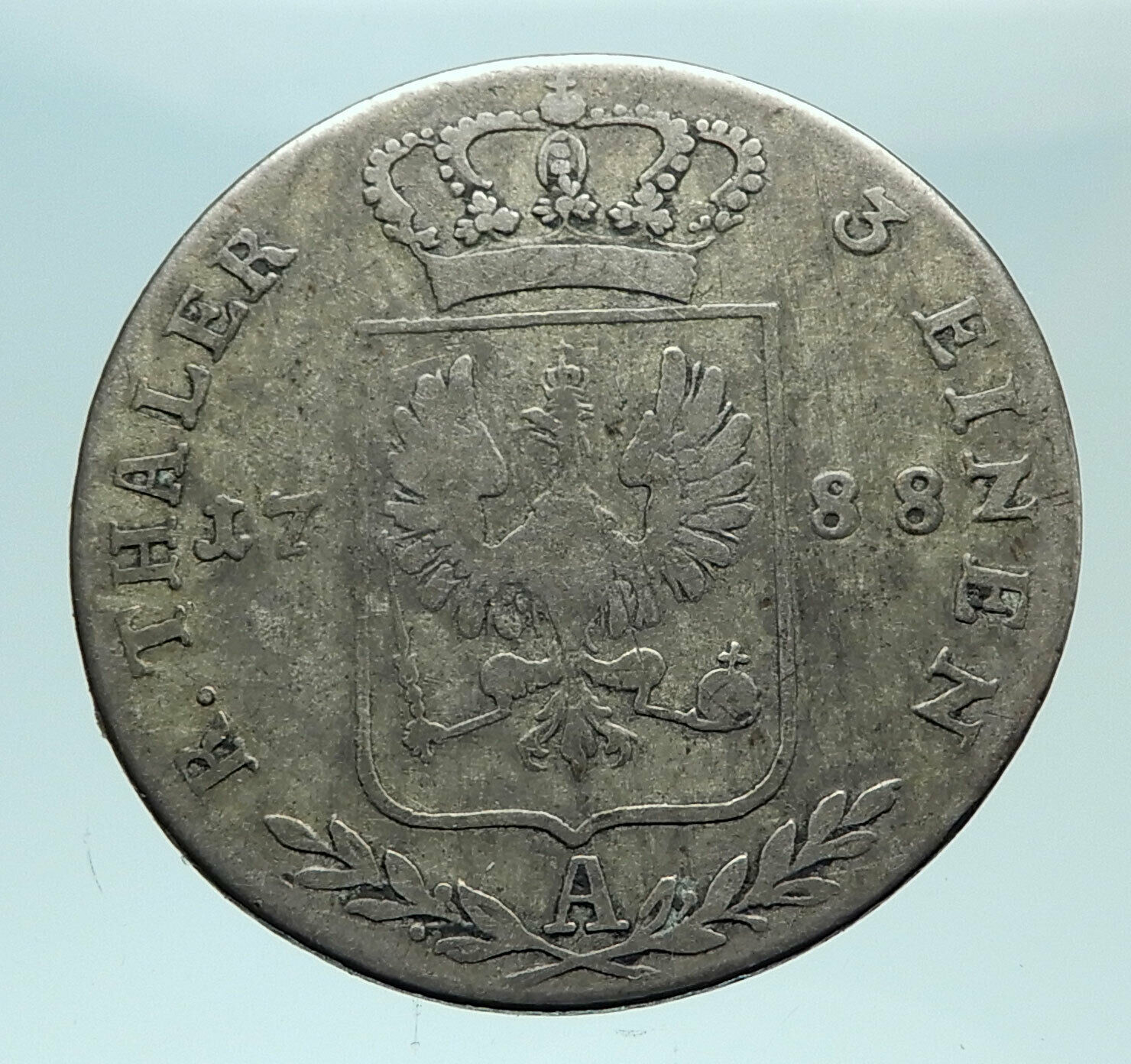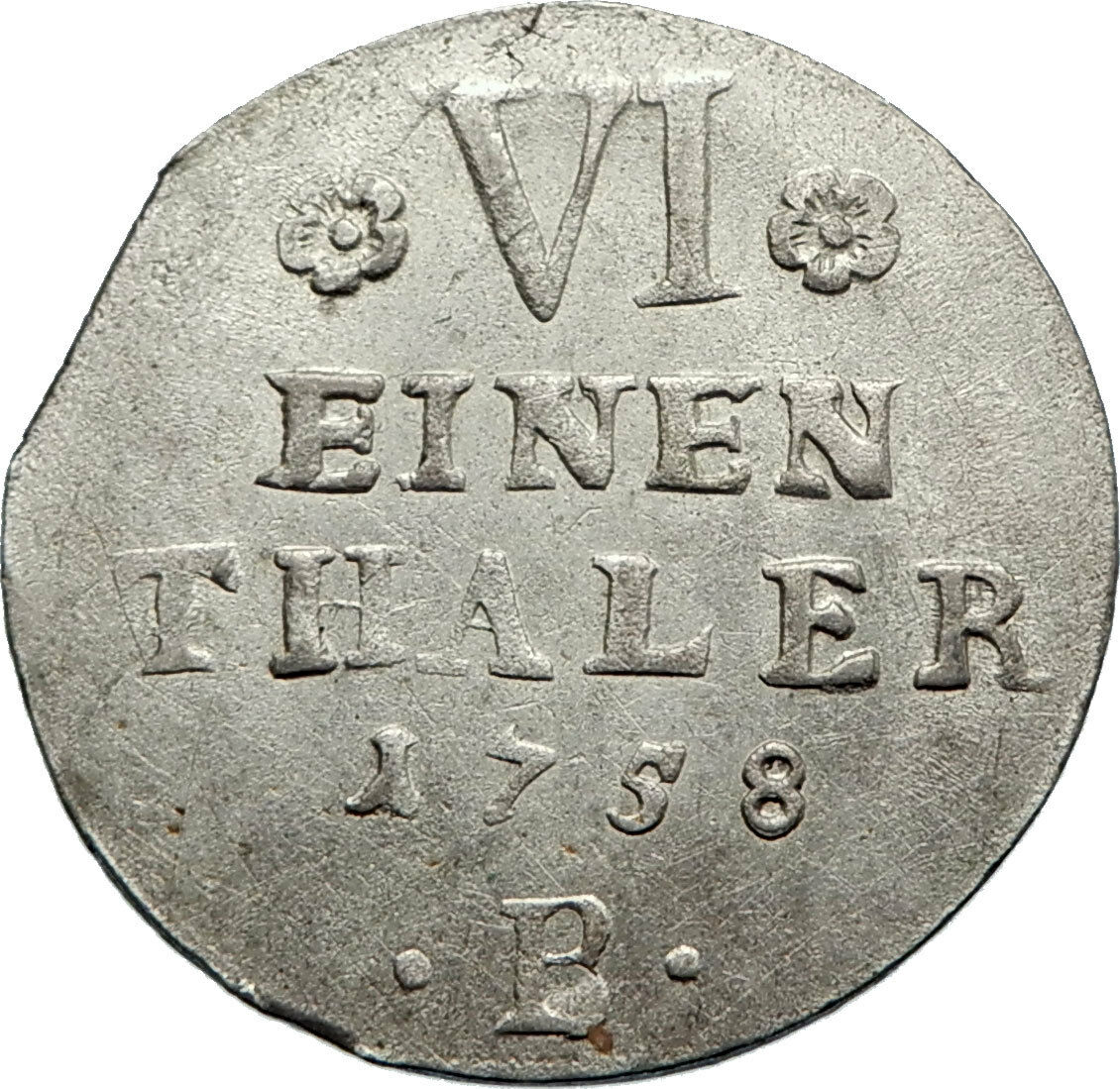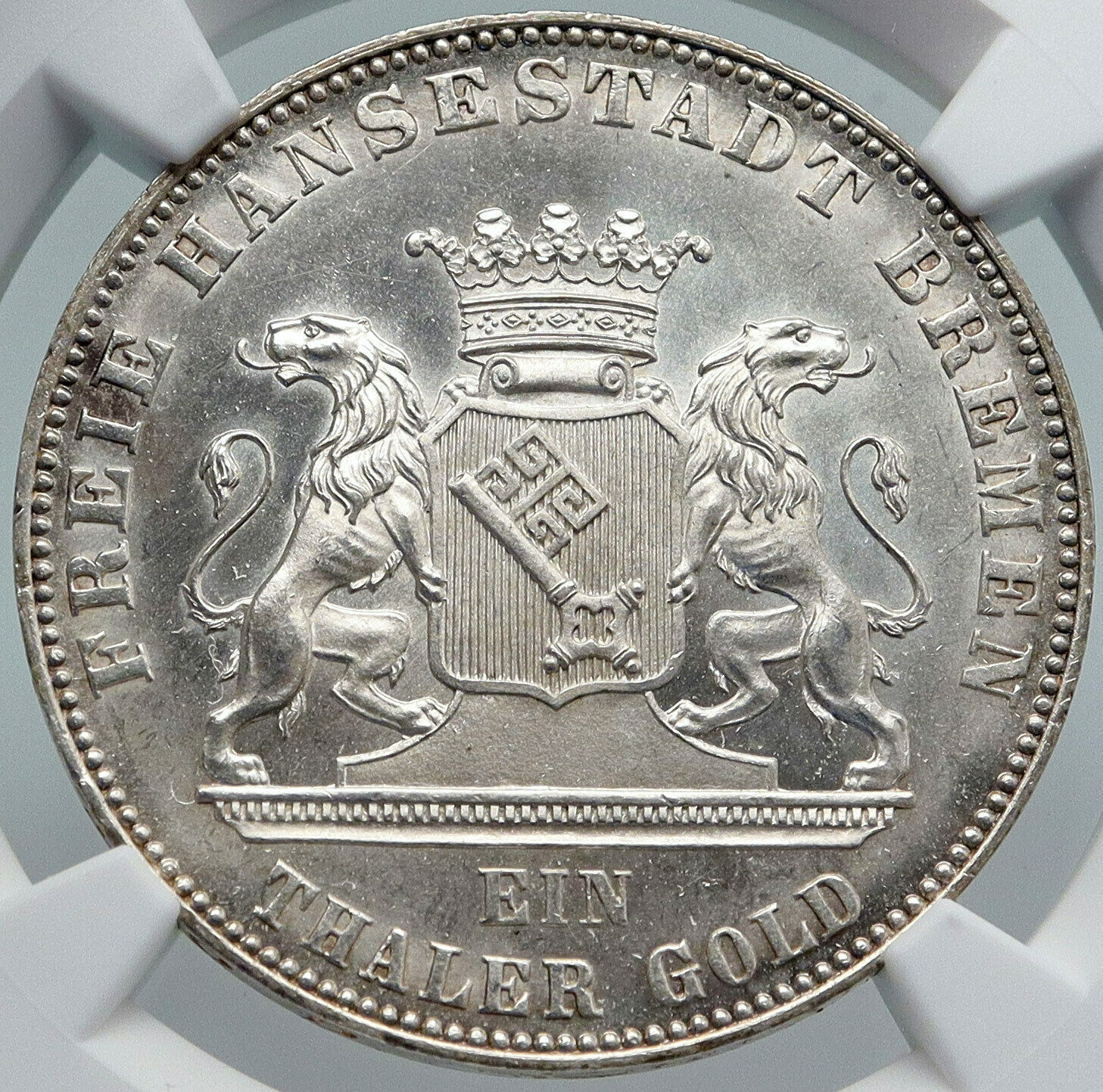|
Germany – German States – Kingdom of Wurttemberg – Oels
Duke Silvius II Frederick
1674 Billon 6 Kreuzer 27mm (2.70 grams)
Reference: KM# 9
SYLVI9 FRID. D.G. DVX. – WIRT. TEC. I. S. OLS., Sylvius Friedrich facing right.
CO MONTB DO I HEID STERN & ME, Silesian eagle in circle, princely hat above.
You are bidding on the exact item pictured, provided with a Certificate of Authenticity and Lifetime Guarantee of Authenticity.
Duke Silvius II Frederick of Wurttemberg-Oels (21 February 1651 in Oleśnica – 3 June 1697 in Olesnica) was Duke of Württemberg-Oels from 1668 until his death. Silvius friedrich wuerttemberg oels 1675 av.jpg Silvius friedrich wuerttemberg oels 1675 rv.jpg Life
Silvius Frederick was second son of the Duke Silvius I Nimrod of Württemberg-Oels (1622–1664) from his marriage to Elisabeth Marie, Duchess of Oels (1625–1686) .
After his father’s death in 1664, his mother took up government as regent for her four sons. Silvius Nimrod and his older brother Charles Ferdinand went on a Grand Tour. Charles Ferdinand died in 1668, when they were visiting the Netherlands.
The remaining three brothers divided the country in 1672: Silvius Frederick received Oels; his brother Christian Ulrich I received Bernstadt and his youngest brother Julius Siegmund received Międzybórz and Třebenice. As Julius was still a minor, Silvius Frederick acted as his regent until he came of age. In the Chamber of Princes, the three brothers had to share their single vote.
Silvius Frederick married on 7 May 1672 in Oels with Eleonore Charlotte (1656–1743), the daughter of the Duke George II of Württemberg-Montbéliard. The marriage remained childless.
He was a member of the Fruitbearing Society under the nickname der Schützende (“the Protector”).
Silvius Frederick died in 1697, without leaving an heir. By order of his mother, Oels fell to her next younger son, Christian Ulrich I.
  Germany, officially the Federal Republic of Germany is a federal parliamentary republic in western-central Europe. It includes 16 constituent states and covers an area of 357,021 square kilometres (137,847 sq mi) with a largely temperate seasonal climate. Its capital and largest city is Berlin. With 81 million inhabitants, Germany is the most populous member state in the European Union. After the United States, it is the second most popular migration destination in the world. Germany, officially the Federal Republic of Germany is a federal parliamentary republic in western-central Europe. It includes 16 constituent states and covers an area of 357,021 square kilometres (137,847 sq mi) with a largely temperate seasonal climate. Its capital and largest city is Berlin. With 81 million inhabitants, Germany is the most populous member state in the European Union. After the United States, it is the second most popular migration destination in the world.
Various Germanic tribes have occupied northern Germany since classical antiquity. A region named Germania was documented before 100 CE. During the Migration Period the Germanic tribes expanded southward. Beginning in the 10th century, German territories formed a central part of the Holy Roman Empire. During the 16th century, northern German regions became the centre of the Protestant Reformation..
The rise of Pan-Germanism inside the German Confederation resulted in the unification of most of the German states in 1871 into the Prussian-dominated German Empire. After World War I and the German Revolution of 1918-1919, the Empire was replaced by the parliamentary Weimar Republic. The establishment of the Third Reich in 1933 led to World War II and the Holocaust. After 1945, Germany split into two states, East Germany and West Germany. In 1990, the country was reunified.
 In the 21st century, Germany is a great power and has the world’s fourth-largest economy by nominal GDP, as well as the fifth-largest by PPP. As a global leader in several industrial and technological sectors, it is both the world’s third-largest exporter and importer of goods. Germany is a developed country with a very high standard of living sustained by a skilled and productive society. It upholds a social security and universal health care system, environmental protection and a tuition free university education. In the 21st century, Germany is a great power and has the world’s fourth-largest economy by nominal GDP, as well as the fifth-largest by PPP. As a global leader in several industrial and technological sectors, it is both the world’s third-largest exporter and importer of goods. Germany is a developed country with a very high standard of living sustained by a skilled and productive society. It upholds a social security and universal health care system, environmental protection and a tuition free university education.
Germany was a founding member of the European Union in 1993. It is part of the Schengen Area, and became a co-founder of the Eurozone in 1999. Germany is a member of the United Nations, NATO, the G8, the G20, and the OECD. The national military expenditure is the 9th highest in the world. Known for its rich cultural history, Germany has been continuously the home of influential artists, philosophers, musicians, sportsmen, entrepreneurs, scientists and inventors.
|






 Germany, officially the Federal Republic of Germany is a federal parliamentary republic in western-central Europe. It includes 16 constituent states and covers an area of 357,021 square kilometres (137,847 sq mi) with a largely temperate seasonal climate. Its capital and largest city is Berlin. With 81 million inhabitants, Germany is the most populous member state in the European Union. After the United States, it is the second most popular migration destination in the world.
Germany, officially the Federal Republic of Germany is a federal parliamentary republic in western-central Europe. It includes 16 constituent states and covers an area of 357,021 square kilometres (137,847 sq mi) with a largely temperate seasonal climate. Its capital and largest city is Berlin. With 81 million inhabitants, Germany is the most populous member state in the European Union. After the United States, it is the second most popular migration destination in the world. In the 21st century, Germany is a great power and has the world’s fourth-largest economy by nominal GDP, as well as the fifth-largest by PPP. As a global leader in several industrial and technological sectors, it is both the world’s third-largest exporter and importer of goods. Germany is a developed country with a very high standard of living sustained by a skilled and productive society. It upholds a social security and universal health care system, environmental protection and a tuition free university education.
In the 21st century, Germany is a great power and has the world’s fourth-largest economy by nominal GDP, as well as the fifth-largest by PPP. As a global leader in several industrial and technological sectors, it is both the world’s third-largest exporter and importer of goods. Germany is a developed country with a very high standard of living sustained by a skilled and productive society. It upholds a social security and universal health care system, environmental protection and a tuition free university education.




